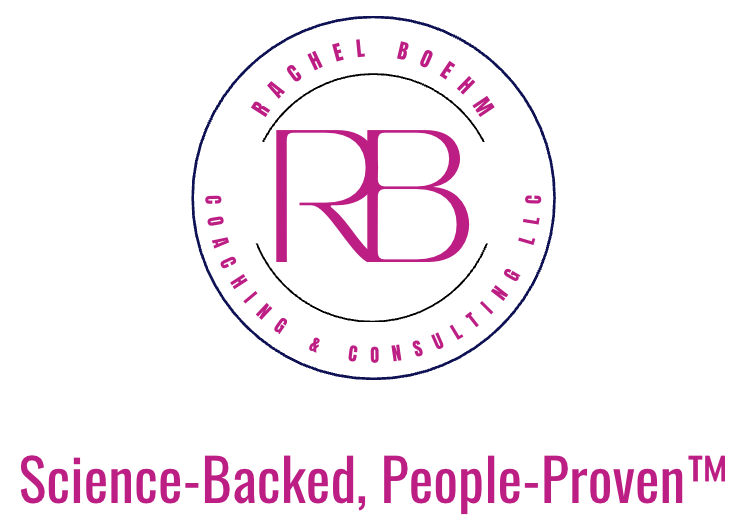Grit vs Quit: The Science of Knowing When to Ditch Your Goals (Before They Ditch You)
In my mid-twenties, I learned the difference between quitting and changing your mind.
It was a hard lesson.
Until then, most of my life had been spent pursuing a career in film, television, theater, and music. I was in LA a couple of years out of college, during which I majored in these disciplines. I was absolutely miserable. The unhappiness wasn’t new. It had been building since my freshman year of college. But instead of admitting it, pausing, reflecting, and talking with someone about how I was happier in other courses and questioning what I thought I wanted, I pushed onward. I stayed the course. I didn’t want to quit. I didn’t want people to think I couldn’t cut it. I didn’t want anyone to say I told you so. I was demonstrating what some might say was “grit” before I even knew what that was.
Eventually, I reached my breaking point and was forced to decide. I truly felt like if I continued on this course I would die, which really forces you to make some tough calls.
Thankfully, it occurred to me that quitting isn’t the same thing as changing your mind. It wasn’t that I was good enough. It wasn’t that I hadn’t tried hard enough. It wasn’t anything other than the reality of working in that space didn’t align with the life I wanted to live or the person I wanted to be. It didn’t align with the environment I wanted to live in or my core values.
Now, having studied I/O psychology and behavioral science I know that what I was experiencing was a mismatch between my person (me) and my environment (the industry and the actual city). This mismatch can lead to burnout, mental and physical ill health, and sap motivation.
I also know that when “person-environment fit” indeed fits, that is they are in alignment, individuals are more likely to demonstrate higher levels of grit. Their motivation and confidence are greater, and the work they perform that is central to their jobs improves.
Demonstrating grit is important in achieving goals. If you quit at the first hard knock you will never get anywhere. However, there comes a point when it’s no longer a matter of grit. The question isn’t whether you have or lack grit. It’s whether you are pursuing the best path for you. When you are in the right role and organizational culture (when there is Person-Enviornment Fit) then grit is more likely to be naturally present and enduring.
Assessing Your Fit to Guide Your Grit or Quit Decision
Think about a time when you were having fun working through a challenge. Yes, it was hard, but it was a rewarding hard not a depleting hard. Now think of a time when you did experience a hard that was depleting. When the energy was draining out of you, you started questioning your competence, and wondering if you were even making a difference. The first experience is grit. The second experience is a misfit. The first helps us lead a healthy, fulfilling, joyful life. The second leads to burnout, and poor mental and physical health.
Normally, I would now launch into tips on how to know whether you are experiencing grit or a misfit. But frankly, you know. You know when you are unhappy. You know when you are feeling depleted. You know in your gut. The real challenge isn’t knowing. It’s admitting it to yourself and being brave enough to change course. I hope you make this call before you get as far down the hole as I did.
This is where a coach or therapist, or both, can be helpful. But here are a few action steps to get you started.
First, start practicing self-compassion. I could write a whole other article on this and have. For brevity, think of it as cutting yourself some slack. Be kind to yourself.
In addition to self-compassion, start identifying your core values. Then your passions. Then your skills. Ask yourself what kind of life you want to live rather than what you want to “be”. And also remember you are a “who” not a “what”. So try asking yourself “Who do you want to be”?
Other questions to help you explore a change in career direction include:
What legacy do you want to leave?
What are your top priorities in life?
What kind of work environment and company culture bring out the best in you?
What would you like to express through work?
And finally, try the “retirement party” exercise.
Close your eyes and imagine that it’s years from now and you’re at your retirement party. You’ve worked extremely hard to get to this point. Friends, family, and colleagues are around you. And someone asks, “What are you most proud of?” Think about that answer. What contributions would you be most proud of?
Finally, what small step could you take right now, however imperfect, to start living in alignment with your values, engaging your passions, and exploring your purpose? Here’s a hint, imagine you are back at that retirement party and this time a guest asks, “What do you regret not doing?”
Write down your answer. Rephrase them from negative to actionable, meaning instead of: “I never mentored….” or “I never volunteered…” or “I didn’t take that trip…” Write, “I will mentor”, “I will volunteer…”. “I have not taken that trip, yet…”
And now you have a list of goals.
References


